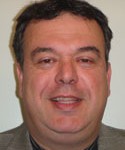Non-pharmacological therapies can be effective in treating the symptoms of dementia. They can help with both behavioral symptoms and memory problems. They include aromatherapy, sensory stimulation, light therapy, herbal medicine, dietary supplements, acupuncture, homeopathy, osteopathy, chiropractic and reflexology.
These types of therapies can be an alternative or a supplement to other treatments. But it is important to follow advice from your doctor about the way in which a treatment should be used. Doctors should always be kept informed about the use of any complementary therapies. Prescribed medication should never be discontinued without medical supervision. It’s also important to remember that no treatment is risk-free. Some herbal remedies can interact with other medications and, although it is rare, some therapies can cause bad reactions.
What are behavioral symptoms?
More than half of people with dementia have behavioral symptoms that affect their moods and behavior (see below). These symptoms are more common in the middle or later stages of dementia and will not necessarily be a problem for the person with dementia. The behavior often improves by itself, and may stop without treatment over a few months. However, the behavior may continue, and can sometimes cause problems and stress for the person with dementia as well as their caregivers, friends and family.
Behavioral symptoms in people with dementia may include:
- Restlessness or over-activity
- Depression
- Irritability, anxiety or suspicion
- Aggression (verbal or physical)
- Hallucinations (seeing or hearing things that aren’t there)
- Delusions (being disturbed by thoughts, and believing things that aren’t true)
- Tendency to shout repeatedly or become noisy
- Loss of normal inhibitions – for example, touching their private parts.
Often the best approach is to first keep an eye on the person with dementia, and then see a general practitioners if the symptoms get worse. It is also worth checking to see whether there might be a physical cause for their symptoms. If someone with dementia starts to behave differently, the first thing to consider should be whether an illness or infection could be the cause. These can include colds and urinary infections, which can make a person with dementia more confused, restless or irritable. Physical discomfort and pain can also lead to changes in mood and behavior. Physical contact, which is often a routine part of caring for someone with dementia, can increase a person’s discomfort if they are already feeling unwell or is in pain. This may lead to agitation, irritability or aggression.
Cognitive Skills
Cognitive skills can be described as thinking skills; cognition is a word used to describe thought processes.
Cognitive stimulation activities are designed to stimulate thinking skills and engage people who have dementia. They are often group-based and include games, with an emphasis on enjoyment. Cognitive stimulation can be provided by health or social care staff who has had appropriate training.
The benefits of cognitive stimulation for people with dementia could include improvement in memory, thinking skills and quality of life.
Cognitive rehabilitation is also being tested to find out if it can help people with dementia. This technique aims to improve how people manage everyday tasks by setting personal goals and finding ways to achieve them. The focus is on developing the person’s strengths and helping them to overcome their individual challenges.
It is best to be wary of “herbal,” “alternative” or “complementary” products that claim to benefit people with dementia, or improve memory. There has been very little high quality research into these products, and some may not be safe for people with dementia. For example, despite common belief, there is no convincing evidence that the herbal supplement Ginkgo biloba can benefit people with dementia.
The most important thing when considering taking a complementary therapy for dementia is to consult a doctor. Some alternative or complementary products interact with conventional medication, so a doctor needs to know about anything being taken. These products should never be taken as a substitute for prescribed medicines.
Micha Shalev MHA CDP CDCM CADDCT is the owner of Dodge Park Rest Home and The Adult Day Club at Dodge Park, 101 Randolph Road, Worcester, as well as the new state-of-the-art Oasis at Dodge Park. He is a graduate of the National Council of Certified Dementia Practitioners program, and well-known speaker covering Alzheimer’s and Dementia training topics. The programs at Dodge Park Rest Home specialize in providing care for individuals with dementia and Alzheimer’s disease. The facility holds a FREE monthly support group meeting on the second Tuesday of each month for spouses and children of individuals with dementia and/or Alzheimer’s disease.
Shalev can be reached at 508-853-8180 or by e-mail at m.shalev@dodgepark.com. For more information, visit www.dodgepark.com. Archives of articles from previous issues can be read at www.fiftyplusadvocate.com.












